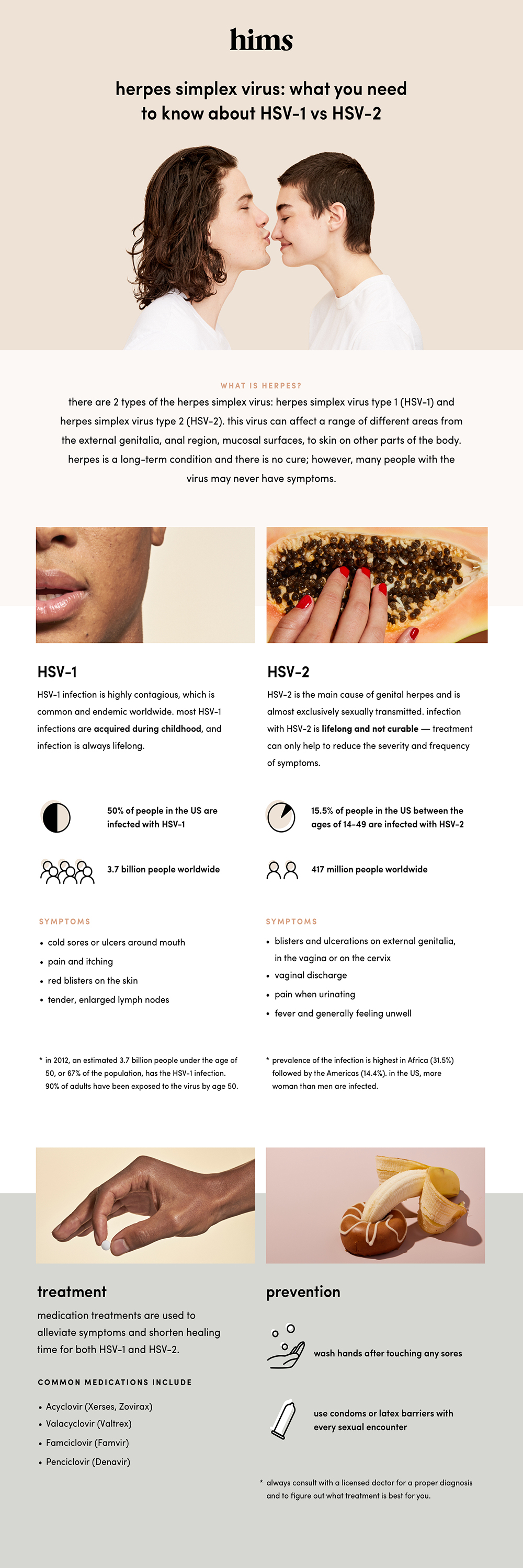An unfortunate part about being sexually active is the risk of contracting a sexually transmitted disease (STD). Even those who consistently practice safe sex can be exposed to or worse yet contract an STD. Among the most common of STD’S is herpes. Yes, the dreaded “H” word. It can make many a man feel like Hester Prynne in “The Scarlett Letter”. However, they need not feel alone. Believe it or not, according to Hims a whopping 15% of those between the ages of 14-49 are infected with a strain of herpes known as HSV-2. Yet, as common as this STD is, there are a ton of misconceptions and confusion out there. How it is contracted? What are it’s symptoms? What are the effects? Can it be cured or treated? Allow us to clear up some of the confusion.
What Is Herpes?
It is an infection caused by HSV (herpes simplex virus). There are 2 types of herpes simplex virus. Herpes simplex virus type 1 (HSV-1) and Herpes simplex virus type 2. Both strains can potentially affect a number of areas of the body from the external genitalia, anal region, mucosal surfaces and skin in other parts of the body.
What’s the Difference?
HSV-1
HSV-1 is commonly known as oral herpes. HSV-1 is contagious. The majority of HSV-1 infections are acquired during childhood and are lifelong. According to WebMD, HSV-1, is transmitted through oral secretions or sores on the skin and can be spread through kissing or sharing objects such as toothbrushes or eating utensils.
HSV-2
HSV-2 is commonly known as genital herpes. This strain is also contagious. Web MD also states, however, that a person can only get HSV-2 infection during sexual contact with someone who has a genital HSV-2 infection.
What are the Symptoms?
Symptoms of herpes simplex virus typically appear as a blister or as multiple blisters on or around affected areas – customarily the mouth, genitals or rectum. When the blisters break, they leave tender sores. In the case of HSV-2 blisters around the genethliac and or/pain when urinating can also be symptoms.
How Can It Be Treated?
The bad news is there is no cure for either strain. The good news is both strains are treatable and those who have contracted a strain can alleviate their symptoms with medication. Famvir, Zovirax and Valtrex are among the drugs used to treat the symptoms of herpes.
Prevention
While many may not wish to hear it. Abstinence from sex is the only sure-fire way to avoid contracting herpes. However, that may not always be practical in today’s day and age. Therefore, ensuring that you and your partner use condoms and are regularly tested are also an effective means of prevention and detection.
For a helpful guide that helps breakdown the basics and separate fact from fiction. Check out the handy infographic above created by and courtesy of Hims.

